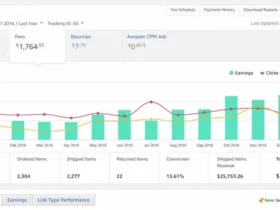In the dynamic landscape of modern business, the right software can be the linchpin that propels a company toward success. From streamlining operations to enhancing communication, the right business software can make a significant difference. However, with a plethora of options available, selecting the right software for your specific needs can be a daunting task. In this article, we will delve into the key features that businesses should consider when choosing software to ensure that it aligns seamlessly with their objectives and contributes positively to their bottom line.
Scalability and Flexibility
One of the most crucial aspects to consider when choosing business software is its scalability and flexibility. As businesses grow and evolve, so do their needs. The chosen software should have the capacity to scale alongside the organization, accommodating increased data, users, and transactions without compromising performance. Scalability ensures that the software remains a viable and cost-effective solution in the long term. Additionally, flexibility is paramount as it enables the software to adapt to changes in business processes or industry regulations. A robust software solution should allow for customization, ensuring that it aligns precisely with the unique workflows and requirements of the business. This adaptability is key to future-proofing your investment and ensuring that the software can evolve seamlessly with your organization.
Integration Capabilities
In today’s interconnected business environment, seamless integration is a non-negotiable feature for any software solution. The chosen software should have the ability to integrate with existing systems and applications within the organization. This integration streamlines data flow, reduces redundancy, and enhances overall efficiency. Whether it’s integrating with customer relationship management (CRM) tools, accounting software, or third-party applications, a well-integrated system promotes a cohesive and unified digital infrastructure. This not only saves time but also minimizes the risk of errors associated with manual data entry. When considering business software, prioritize solutions that offer robust APIs (Application Programming Interfaces) and support for popular integration standards, ensuring a smooth and efficient exchange of information across the entire organizational ecosystem.
Security and Compliance
The increasing digitization of business processes brings forth heightened concerns regarding data security and regulatory compliance. When selecting business software, prioritizing security features is paramount to safeguard sensitive information and maintain the trust of clients and stakeholders. Look for software that employs encryption protocols, multi-factor authentication, and comprehensive access controls. Regular software updates and patches should be readily available to address emerging security threats. Additionally, compliance with industry-specific regulations and standards is essential. Whether it’s GDPR for data protection, HIPAA for healthcare information, or other regional compliance requirements, ensuring that the software aligns with these standards is crucial. A comprehensive understanding of the software’s security measures and its compliance certifications provides a solid foundation for establishing trust and mitigating potential risks.
Advanced Invoicing Capabilities

In the realm of business software, a pivotal feature that deserves special attention is advanced invoicing capabilities. Efficient financial management is the lifeblood of any organization, and a robust invoicing system can streamline processes and enhance cash flow. When evaluating business software, look for an advanced invoicing program that goes beyond basic invoicing functions. Such a program should support automated invoicing, allowing businesses to set up recurring invoices and reduce manual work. Integration with accounting systems ensures seamless financial tracking, providing real-time insights into the company’s fiscal health. Additionally, features like customizable invoice templates, late payment reminders, and multi-currency support contribute to a comprehensive invoicing solution. By incorporating an advanced invoicing program into the broader business software ecosystem, organizations can optimize their financial workflows and improve overall operational efficiency, creating a more cohesive and effective business environment.
User-Friendly Interface
While considering the myriad features of business software, the user interface plays a pivotal role in ensuring widespread adoption and successful implementation. A user-friendly interface enhances accessibility and reduces the learning curve for employees, fostering quicker adoption and maximizing the software’s potential. Intuitive navigation, clear design, and responsive functionalities contribute to a positive user experience. When selecting business software, prioritize solutions that offer a user interface tailored to the specific needs of your team. Conducting user testing and seeking feedback during the selection process can provide valuable insights into the software’s usability, helping you choose a solution that aligns seamlessly with your workforce’s capabilities and expectations.
Cloud-Based Accessibility
In the age of remote work and global collaboration, the accessibility of business software is a critical consideration. Opting for a cloud-based solution ensures that users can access the software from anywhere with an internet connection, facilitating remote work and enhancing collaboration among geographically dispersed teams. Cloud-based business software also offers scalability, as resources can be easily scaled up or down based on business requirements. This flexibility not only future-proofs your investment but also reduces the burden on IT infrastructure, allowing for cost-effective and efficient management of software resources. As businesses continue to embrace hybrid and remote work models, the ability to access crucial software applications from any location becomes a key factor in maintaining operational continuity and productivity.
Vendor Support and Updates
The journey with business software doesn’t end with its implementation; ongoing support and updates from the vendor are vital for long-term success. Choosing a software provider with a reputation for excellent customer support ensures that your team can quickly address any issues that may arise. Look for vendors that offer regular updates and improvements to their software, demonstrating a commitment to staying current with technological advancements and addressing potential security vulnerabilities. A vendor with a responsive support team and a proactive approach to software updates ensures that your organization can adapt to changing business needs and technology landscapes seamlessly. Considering the reliability and responsiveness of vendor support is an often-overlooked yet critical aspect in ensuring the continued success of your chosen business software.
Choosing the right software for your business is a strategic decision that demands careful consideration of various factors. Scalability and flexibility, integration capabilities, security, advanced invoicing features, user-friendly interfaces, cloud-based accessibility, and vendor support collectively contribute to a comprehensive evaluation process. By prioritizing these key features, organizations can select business software that not only addresses their immediate needs but also provides a foundation for long-term success. The interconnected nature of these considerations ensures that the chosen software becomes an integral part of the organization’s digital infrastructure, fostering efficiency, innovation, and adaptability. In an era where technology evolves rapidly, making informed decisions regarding business software is not just about the present; it’s an investment in the future of the organization.













